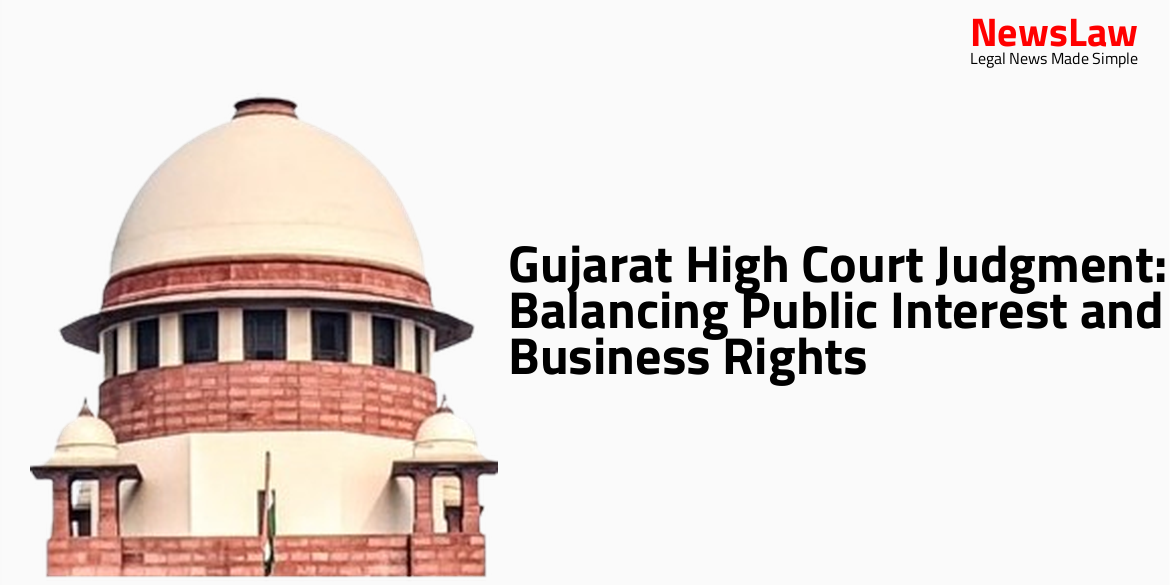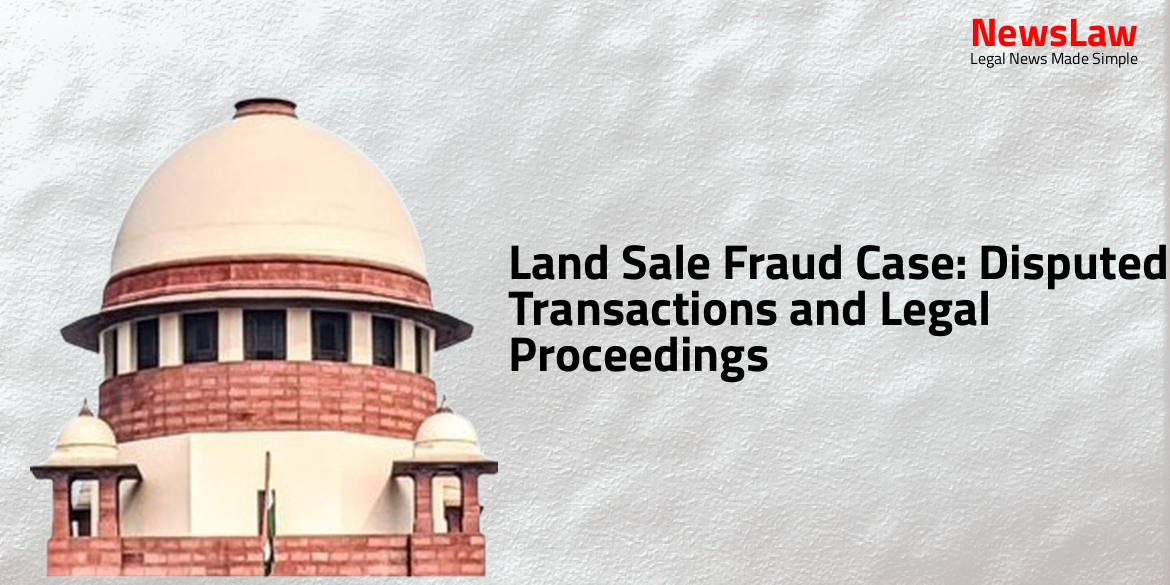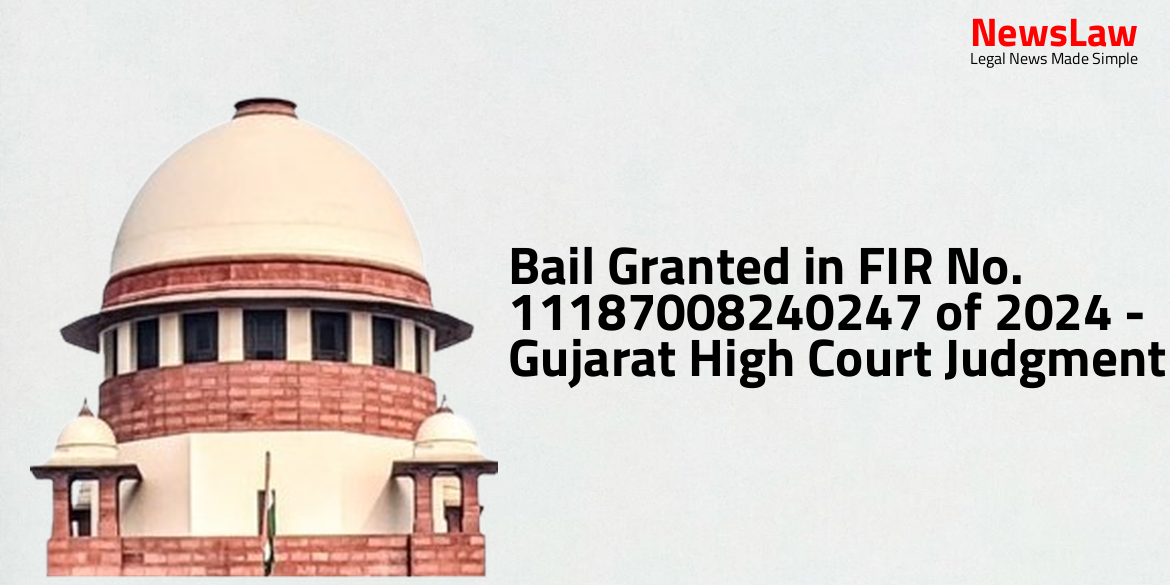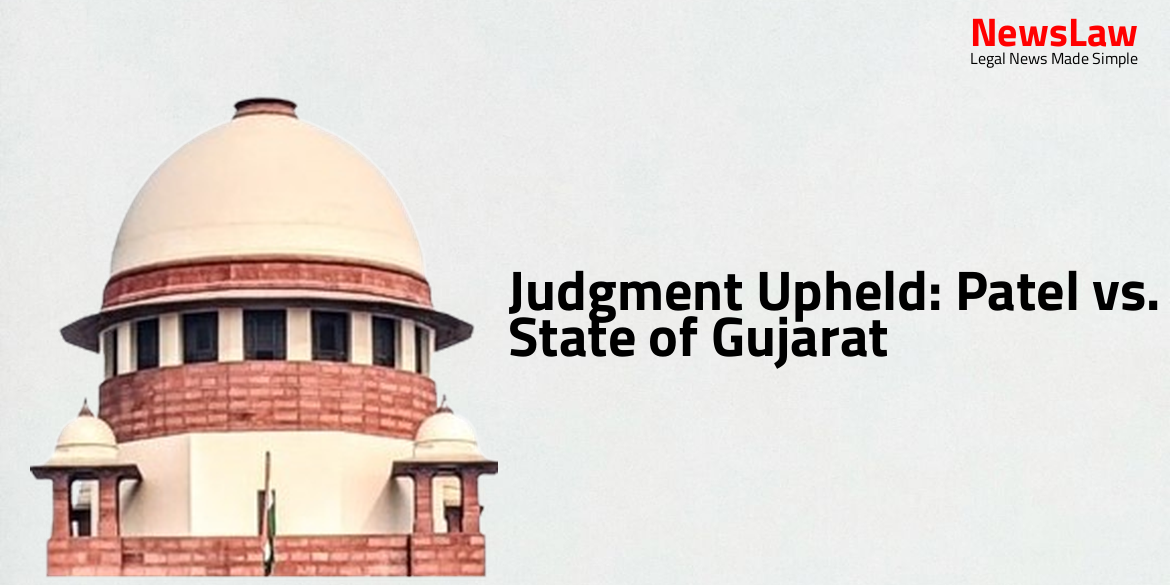A significant ruling by Gujarat High Court sheds light on the delicate balance between public interest and business rights. This case, emphasizing the rights of businesses while considering public welfare, sets a precedent for similar legal disputes. Stay tuned to learn more about the detailed analysis of this judgment and its impact.
Arguments
- Learned advocate Mr. Nilay Thaker appears on behalf of the original complainant.
- He seeks permission to file his Vakalatnama, which is granted.
- The petitioner, Mr. John Doe, filed a petition against the respondent.
- Mr. John Doe stated that the respondent had violated his rights.
- The petitioner requested the court to provide appropriate relief.
- The petitioner’s legal representative presented arguments in support of the petition.
- After thorough examination of the petitioner’s claims, the court accepted the petition for further review.
Analysis
- The complaint alleges meeting accused no. 1 and accused no. 2 for immigration purposes on 02.02.2022.
- Initial complaint pertained to forgery of job letter, nomination, and training certificate.
- A subsequent complaint included the appellant with enhanced allegations not present in the initial complaint.
- The motive appears to transform a civil dispute into a criminal one to pressure the appellant for refunded payment.
- Accused no. 1 is accused of fabricating false documents regarding the complainant’s wife, prompting the complaint.
- The forgery allegations do not involve the present petitioners, and the documents in question are not of valuable securities.
- Criminal Courts should not be used for settling civil disputes or personal vendettas.
- High Court should refrain from giving a prima facie decision when facts are incomplete and issues are of magnitude.
- Criminal proceedings can be quashed under S. 482 CrPC if the allegations do not constitute an offense or lack evidence.
- Quashing of proceedings is warranted if the allegations are absurd, improbable, or an abuse of the court’s process.
- For offense under Section 420 IPC, dishonest inducement must be proven.
- Continuation of criminal proceedings causing harassment can be stopped by High Court.
- Breach of contract does not lead to criminal prosecution for cheating without fraudulent intention.
- Exercise of power under Section 482 of CrPC must be based on sound principles and caution.
- High Court’s power under s. 482 of CrPC can be exercised when proceedings are manifestly mala fide or maliciously instituted.
- Stifling legitimate prosecution should be avoided, and power under Section 482 should not be used in private disputes.
- If the petitioners are in jail, they should be released immediately if not needed for any other case
- The jail authority concerned is directed to ensure the release of the petitioners promptly
- This release is contingent on the petitioners not being required for any other case
Decision
- The RPC argued that the new regulations would adversely affect their business operations.
- The court reviewed the new regulations and found that they were not unreasonable or arbitrary.
- The RPC’s petition to stop the implementation of the regulations was denied by the court.
- The court emphasized the importance of balancing public interest with the rights of businesses in such cases.
Case Title: GAURAVBHAI RAMESHBHAI PATEL Vs. STATE OF GUJARAT
Case Number: R/SCR.A/5669/2024



